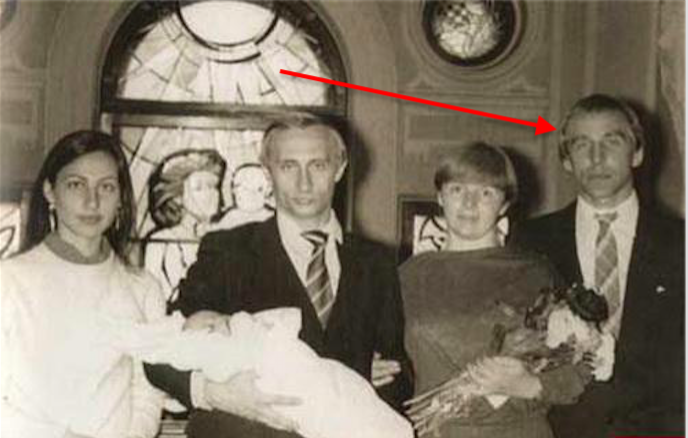tijd
in
puppet_djt
Предвестники

Politico пишет о том, что разведка предупреждала администрацию Обамы о далеко идущих планах Путина еще весной 2014, когда оценивались ситуация после Крыма.
As early as 2014, the administration received a report that quoted a well-connected Russian source as saying that the Kremlin was building a disinformation arm that could be used to interfere in Western democracies. The report, according to an official familiar with it, included a quote from the Russian source telling U.S. officials in Moscow, "You have no idea how extensive these networks are in Europe ... and in the U.S., Russia has penetrated media organizations, lobbying firms, political parties, governments and militaries in all of these places."
That report was circulated among the National Security Council, intelligence agencies and the State Department via secure email and cable in the spring of 2014 as part of a larger assessment of Russian intentions in Ukraine, the official said.
http://www.politico.com/story/2017/08/14/obama-russia-election-interference-241547

В длинной статье про Джулиана Ассанжа в New Yorker приводится интересная деталь о том, что центральный элемент вмешательства в выборы 2016 - решение выложить взломанную почту демократов было принято в ответ на публикацию разоблачений про Панамские бумаги. Путин воспринял это как американскую атаку на себя и решил запустить ответку.
On April 3rd, the reporters published their story, and four days later, visibly irked, Putin offered the first of several responses. He described the Panama Papers as an American-run operation. “They are trying to destabilize us from within,” he said. The Kremlin presented the leak as a personal blow, and as an effort to undermine Russian parliamentary elections. Andrei Soldatov and Irina Borogan, in a forthcoming update of their book, “Red Web,” about the Russian Internet, make the case that the decision to target the American Presidential election with an information-warfare campaign likely originated at a high-level meeting that Putin called the following day. “There is a line you cannot cross, and this line is Putin’s family and his immediate friends,” Soldatov told me.
Within four days, entities that appeared to be fronts for Russian military intelligence began registering domain names for sites intended to release hacked information: first Electionleaks, and then the more general-sounding DCLeaks, which was hosted in a tiny village in Romania. By then, a hacking group known as Fancy Bear-which cybersecurity analysts believe is also controlled by Russian military intelligence-had initiated a wave of phishing attacks targeting American political figures.
http://www.newyorker.com/magazine/2017/08/21/julian-assange-a-man-without-a-country
Расследование OCCRP действительно крутое. На основании этих документов вся верхушка российской власти должна сидеть в тюрьме.
- Alexey Navalny (@navalny) April 3, 2016
Когда ты президент авторитарной страны, украсть деньги из бюджета очень просто. Сложнее их спрятать. Еще сложнее потратить. Мы, конечно, понимаем, что капиталы Тимченко, Ротенбергов и Ковальчуков - тоже в той или иной степени принадлежат Путину. Но всё-таки нельзя считать, например, Ротенбергов совсем номинальными держателями - они полностью управляют бизнесом. <...> Задумка Путина заключалась в том, чтобы хранить личные украденные деньги в самом неожиданном месте, у самого неожиданного персонажа - известного музыканта-виолончелиста, человека лояльного и честного (по отношению к боссу) и, судя по всему, достаточно скромного даже в быту.
https://navalny.com/p/4803/

Что касается Ассанжа, в том, что он давно ведет себя, как "агент влияния" Кремля, нет новой информации. В типичном для него посте Ассанж к фотографии американских нацистов из Виргинии присобачил фотографию факельного шествия в Украине:
The new face of America is eerily familiar. pic.twitter.com/xpAcHo7gHH
- Julian Assange 🔹 (@JulianAssange) August 13, 2017
Когда у Ассанжа была своя передача на канале RT, oн пытался пригласить на нее Навального, но тот благоразумно отказался.
Assange told me that, as he negotiated the deal, he pushed for editorial freedom. He asked RT’s editor-in-chief, Margarita Simonyan, if he could host Alexei Navalny, a Russian opposition leader. “She said, ‘The Kremlin won’t like it, but it would be good for us, because it will show our independence,’ ” he recalled. He then asked about inviting a Chechen terrorist, and got an unambiguous no. Laughing at the memory, he said, “That’s the line: all the way up to a Chechen terrorist.” Assange did invite Navalny, who declined. Navalny’s spokesperson told me that he believed it was indecent to have any contact with RT, saying, “This channel is associated with the spread of lies and propaganda, including about many opposition activists.”